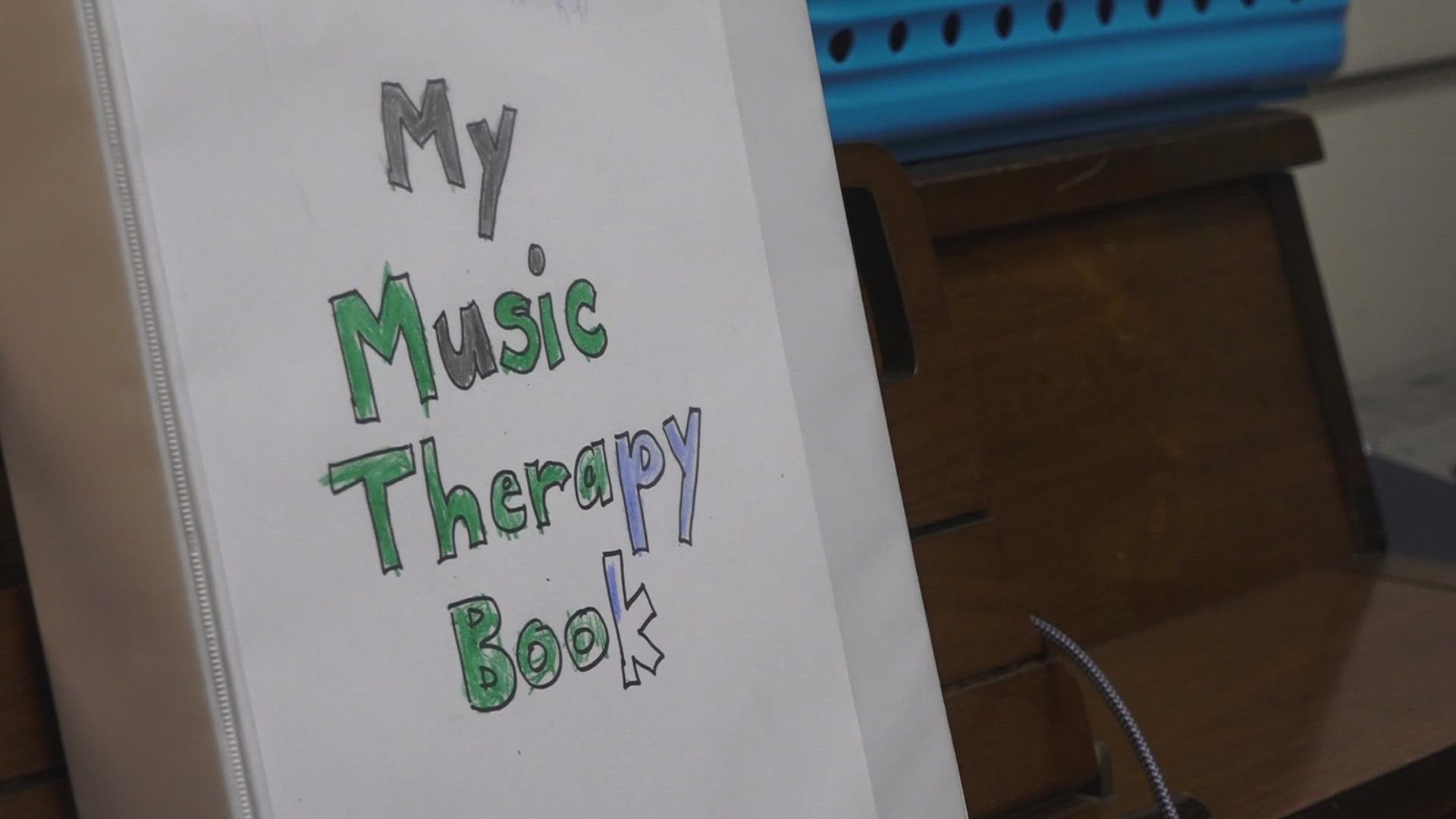KNOXVILLE, Tenn. — In a time when mental health is top of mind, experts say certain beats can boost your brain function.
Studies show music reduces anxiety, blood pressure and pain. At Knoxville Music Therapy, owner Alana Seaton is a firm believer in using music to promote positive mental health.
“We're always finding new ways to use music, especially with the advent of brain imaging and brain scanning, we can actually pinpoint and see which parts of the brain music affects," Seaton said.
Music therapy is the use of music to teach or reach another goal. Seaton says the sessions aren't technically music "lessons," but she uses instruments, songs and beats to help her patients through various barriers.
Seaton believes her practice, and music in general, helps give people of all ages a melody in their mental health.
"All emotions are good, and all emotions are worth feeling," Seaton said. "Music can help be that container for feeling something in a safe way, and feeling something to help you get past whatever is kind of bogging you down."
Music is an accessible medium, even if you don't have the means to get to or pay for therapy.
"You use music in your life, where you connect with it and how it makes you feel good," Seaton said. "If you notice you need more, there are music therapists around to help take it even deeper."
It's a connection you can cater to your specific needs, whether your goal is to relax, feel happier or process grief. Music allows you to manage your own mood.
Researcher Rita Sitney, who is a doctor of social work, says curating playlists to your emotional needs is a transformative technique.
"If you are sad, it's okay to sit in that moment and listen to that sad music, but if you want to feel happy, you want to start gradually switching to music that gets you to a neutral space, and then after that, you kind of transition again to a little bit more higher tempo, to music that gets you to a happy state," Sitney said.
Sitney recommends using styles of music and songs you already enjoy. When you are creating the playlist, listen mainly to the beats per minute and mood of the songs.
Breathing in every beat per minute can promote positive mental well-being.
"You really can create any kind of flow of the playlist," Seaton said. "Trust what you know and what you connect to, and that's usually the right thing.
Whether it's a relaxing rhythm, or a teaching tool, the soundtrack to your sense of self not only helps, it heals.
If you would like to get in contact with Seaton at Knoxville Music Therapy, you can head to her website here.
Below is an example of a curated playlist, with the goal of taking a mood from sad to happy. Digital Producer Madalyn Torres used songs she enjoys to accomplish the personalized playlist on Spotify.

